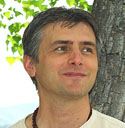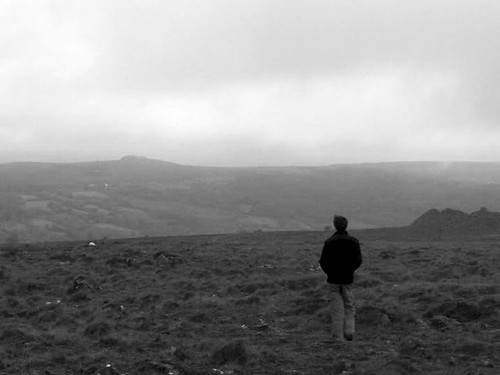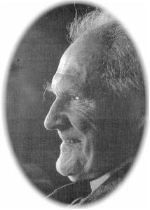Mar 28 2018
Thomas Merton – The Sowing of Meanings
The Sowing of Meanings
by Thomas Merton
See the high birds! Is theirs the song
That dies among the wood-light
Wounding the listener with such bright arrows?
Or do they play in wheeling silences
Defining in the perfect sky
The bounds of (here below) our solitude,
Where spring has generated lights of green
To glow in clouds upon the sombre branches?
Ponds full of sky and stillnesses
What heavy summer songs still sleep
Under the tawny rushes at your brim?
More than a season will be born here, nature,
In your world of gravid mirrors!
The quiet air awaits one note,
One light, one ray and it will be the angels’ spring:
One flash, one glance upon the shiny pond, and then
Asperges me! sweet wilderness, and lo! we are redeemed!
For, like a grain of fire
Smouldering in the heart of every living essence
God plants His undivided power —
Buries His thought too vast for worlds
In seed and root and blade and flower,
Until, in the amazing light of April,
Surcharging the religious silence of the spring,
Creation finds the pressure of His everlasting secret
Too terrible to bear.
Then every way we look, lo! rocks and trees
Pastures and hills and streams and birds and firmament
And our own souls within us flash, and shower us with light,
While the wild countryside, unknown, unvisited of men,
Bears sheaves of clean, transforming fire.
And then, oh then the written image, schooled in sacrifice,
The deep united threeness printed in our being,
Shot by the brilliant syllable of such an intuition, turns within,
And plants that light far down into the heart of darkness and oblivion,
Dives after, and discovers flame.
 — from Selected Poems of Thomas Merton, by Thomas Merton
— from Selected Poems of Thomas Merton, by Thomas Merton

/ Image by NemanjaJ /
It is a sleepy, overcast morning here in Colorado. Clouds have been alternating with brilliant blue skies for several days. Spring is eager to awaken. The reviving world calls me to step out my front door, to stroll…
Ponds full of sky and stillnesses
…to see what is secretly waiting to blossom…
For, like a grain of fire
Smouldering in the heart of every living essence
God plants His undivided power —
Buries His thought too vast for worlds
In seed and root and blade and flower,
The renewal of spring reminds us that so much life and possibility is buried just beneath the surface of the world. We move through our days glancing but rarely looking, brushing past but barely touching, all while a hidden green sap runs through everything, percolating, gestating, just awaiting its moment to blossom in a thousand forms into the world.
We can see a blade of grass or a flower on the branch, and smile but think nothing of it. Or we can really look, recognize the life behind its life, following its secret channels back to the pool of life. When we pay attention, we see not only the myriad expressions of lovely new life, we see life itself, that mysterious questing force that animates the entire universe.
When reading this poem, the question comes up: What does that line about “asperges” mean? “Asperges” is a reference to the Catholic rite of sprinkling holy water on the congregation, especially associated with Easter mass. It comes from the first word (in Latin) of Psalms 51:9, which is traditionally chanted in Catholic masses during Easter. So Merton is making a reference to anointing, sanctification, purification, and Easter…
I hope you find a way to step into the awakening world during this Passover and Easter season.
Then every way we look, lo! rocks and trees
Pastures and hills and streams and birds and firmament
And our own souls within us flash, and shower us with light…
Recommended Books: Thomas Merton
| Selected Poems of Thomas Merton | The Collected Poems of Thomas Merton | A Thomas Merton Reader | The Strange Islands: Poems by Thomas Merton | Thomas Merton Monk & Poet: A Critical Study |

|
Thomas Merton |











